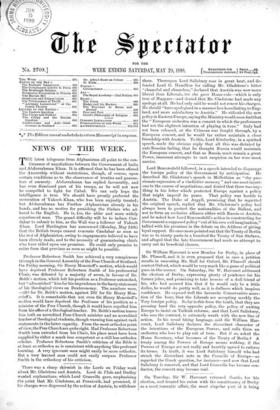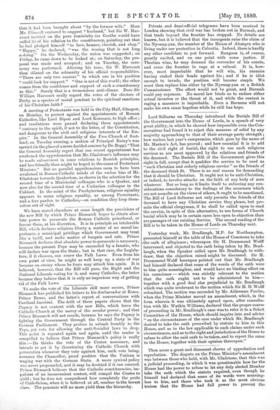On Tuesday, Sir W. Harcourt returned thanks for his election,
and treated his union with the constituency of Derby as a most romantic affair, the most singular part of it being
that it had been brought about "by the former wife." Here Mr. Plimsoll ventured to suggest "husband," but Sir W. Har- court insisted on the pure femininity (as Goethe would have called it) of his relation to the constituency, pointing out that he had pledged himself "to love, honour, cherish, and obey." "Happy," he declared, "was the wooing that is not long a-doing." On the Wednesday, the union was suggested ; on Friday, he came down to be looked at; on Saturday, the pro- posal was made and accepted; and on Tuesday, the cere- mony was performed. Altering his tone, Sir W. Harcourt then dilated on the solemnity of his official responsibilities. "There are only two sources" to which one in his position "could look for support." "One is not of this world ; the other comes from the confidence and support of such a constituency as this." Surely that is a tremendous anti-climax. Does Sir William Harcourt really regard the votes of the electors of Derby as a species of moral pendant to the spiritual sanctions of his Christian faith



































